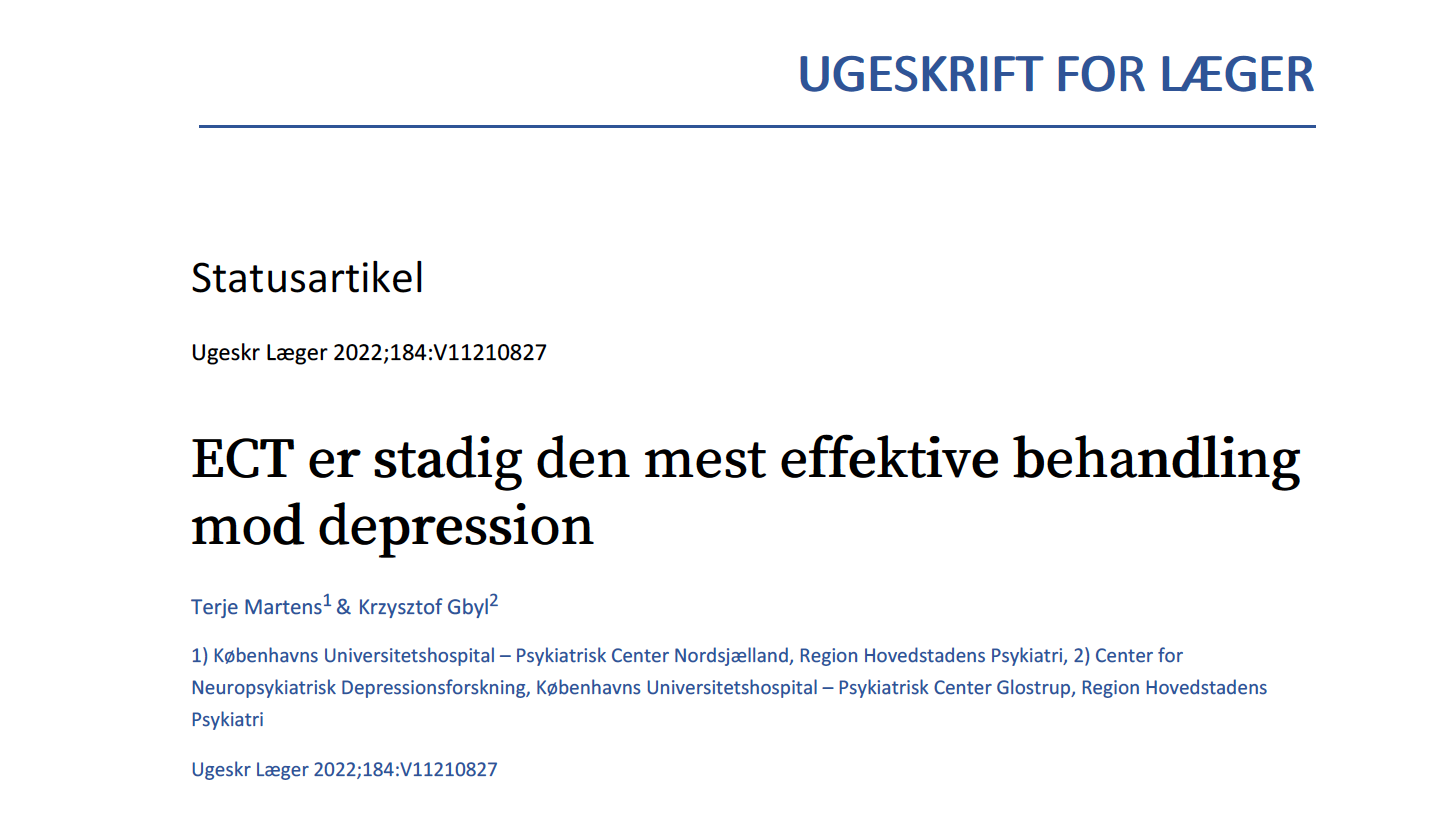New ECT Review From Denmark in the Danish Medical Journal
Out on PubMed, from academics in Denmark, is this review:
[Electroconvulsive therapy remains the most effective treatment for depression].
Ugeskr Laeger. 2022 Apr 4;184(14):V11210827.PMID: 35410651 Danish.
The abstract is copied below:
This review summarises the current knowledge of electroconvulsive therapy (ECT) which is still the most potent and fast-acting antidepressant intervention. The modern procedure is safe when general precautions are taken. Cognitive side effects are transient in most patients, and concerns about side effects should not prevent relevant use. Due to the prognostic benefits of rapid remission, ECT should, in relevant patients, be considered early in the treatment course. Patients should be offered maintenance pharmacotherapy, and, in high-risk cases, tapering of the acute ECT course or maintenance ECT, in order to reduce the risk of relapse.
The article is here.
And from the text:
While most of us do not speak Danish, we can still get a good idea that this is an excellent brief overview of ECT written by Danish experts for their medical colleagues. All the important messages are covered in the abstract, and the 30 references are well chosen to represent the current ECT literature.
Our Danish colleagues kindly sent this information about their backgrounds (for copyright reasons, they cannot provide an English translation at this time):
Dr. Gbyl is a psychiatrist currently working as a postdoctoral researcher at Center for Neuropsychiatric Depression Research (Mental Health Center Glostrup) in Denmark. His research focus is the mechanisms underlying the clinical effect of ECT.
Dr. Martens is a third year psychiatry resident at the Mental Health Centre North Zealand in Denmark. He has a special interest in affective disorders and ECT, and in-depth knowledge with regards to clinical use of the treatment.





Comments
Post a Comment